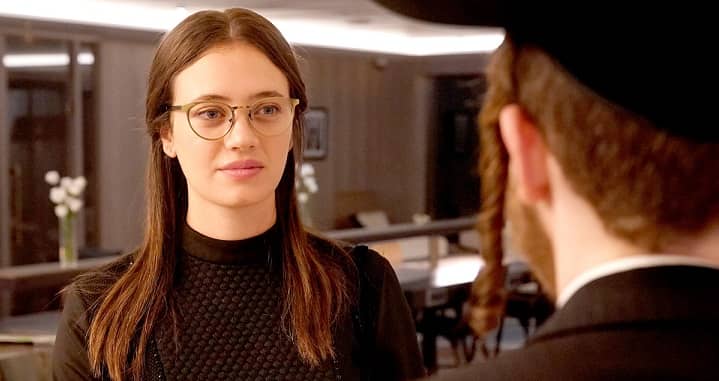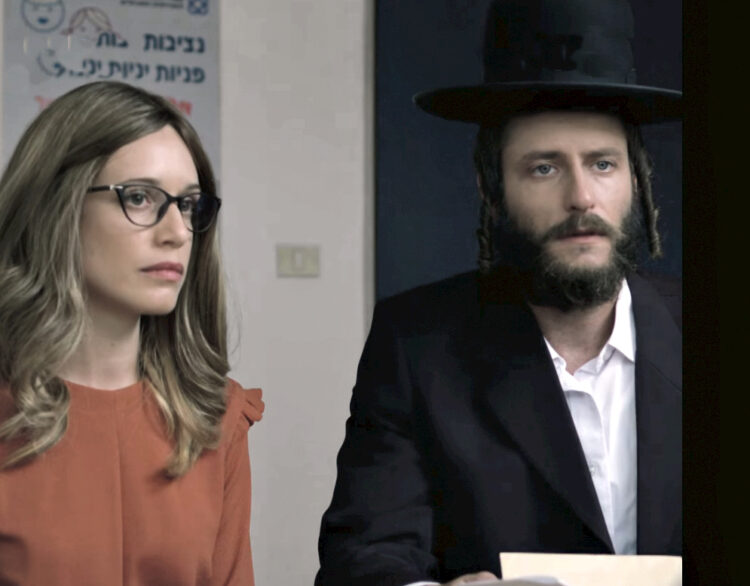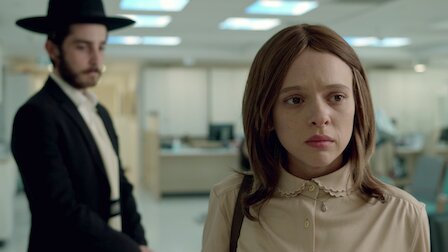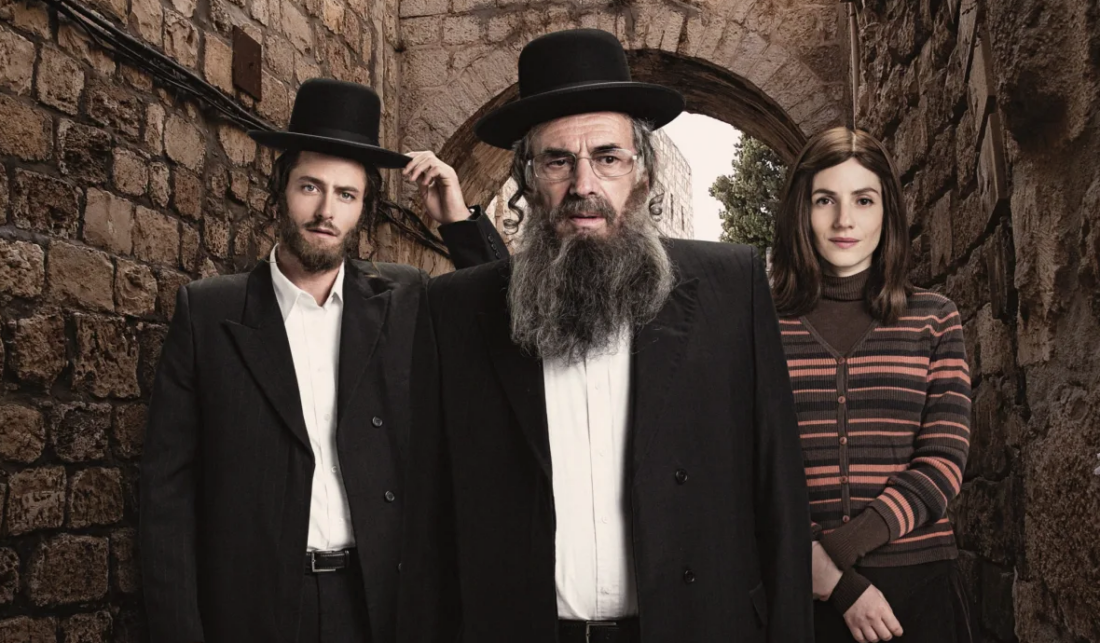Shtisel is back for a third season. The Israeli drama about an ultra-Orthodox family in Jerusalem is now available on the Netflix streaming network.
Rabbi Shulem Shtisel (Dov Glickman), a widower and the headmaster of a religious day school for boys, is the dominant figure in this meticulously crafted production. Bearded and rumpled, he’s clearly the patriarch in this clan. He speaks in a rumbling voice, alternating between Hebrew and Yiddish and invariably alluding to biblical verses to accentuate a point. Much to the detriment of his health, he’s something of a chain smoker.
As the first of nine episodes starts, the future of Shulem’s school hangs on a slender thread. Financial problems may force it it close. Shulem commits a cardinal mistake when he slaps an insolent student, compelling the board of directors to demand his resignation. Shulem fights back, while courting Nahama, a widow who’s just won a big lottery prize.
His adult son, Akiva (Michael Aloni), a former teacher, is following his dreams and earning a passable living as a full-time painter. His wife’s untimely death has plunged him into melancholy, but their baby girl, Dvoraleh, keeps him steady and on his feet.
Shulem’s daughter, Giti (Neta Riskin), runs a kosher restaurant along with her dreamy, kind-hearted husband, Lippe Weiss (Zohar Strauss). Their son, Yosele (Gal Fishel), studies at a local yeshiva. Ruchami (Shira Haas), their daughter, helps Shulem with office work. Ruchami’s husband, Hanina (Yoav Rotman), is also a yeshiva student. Shulim’s second son, Zvi Aryeh (Sarel Piterman), a Torah scholar, creates friction when he forbids his wife to learn how to drive.
Far removed from secular Israeli society, Shtisel and his children and grandchildren live in a slightly rundown but atmospheric haredi neighborhood that could have been plucked from an Eastern European shtetl.
It’s a tight-knit, insular, anti-Zionist community devoted body and soul to traditional Judaism of the Ashkenazi brand. There are morning and evening prayers to observe. There is the weekly sabbath meal to savor. There is the cycle of high Jewish holidays. There are weddings, circumcision ceremonies and bar mitzvahs to attend. It’s a full life.

In one of the first scenes, Giti exerts pressure on Yosele to choose a bride, get married and settle down. It’s not a prospect to which he looks forward, but he softens up after meeting the first candidate. In an amusing mixup, he meets the wrong person, a woman of Sephardi descent named Shira Levi (Reef Neeman), and he’s smitten. Giti cajoles him into meeting Shira Levinson, the other Shira. She’s a fine young woman, but Yosele pines for Shira Levi, a demure lab technician who shares his interest in insects.
To Shulim’s annoyance, Akiva asks for a loan. Akiva is a talented artist, but he’s reluctant to sell his best paintings, which are portrayals of his late wife. Without Akiva’s consent, his well-meaning agent sells three of the canvasses to Racheli (Daniella Kertesz), a wealthy investor from a mysterious background. Akiva persuades her to trade them for other paintings.
When Akiva is charged with child neglect and his baby girl is removed to foster care, he devises a clever scheme to retrieve her. Racheli agrees to help him.

After five years of marriage, Ruchami and her husband are childless. She wants to become pregnant, but childbirth may well endanger her health. Hanina asks his yeshiva mentor whether Jewish law permits a surrogacy birth.

Nuchem (Sasson Gabai), Shulem’s younger brother, returns from abroad in a depressed state. But when Nuchem meets Nahama — a broadcaster who hosts classical music show on radio — he perks up. To Shulem’s discomfort, Nuchem and Nahama announce their engagement, leaving him in the cold.
With its fine cast, plausible situations and fairly exotic backdrops, Shtisel is an immersive television experience, providing a window into a camera-shy religious sect that cherishes its traditions and values its privacy.
